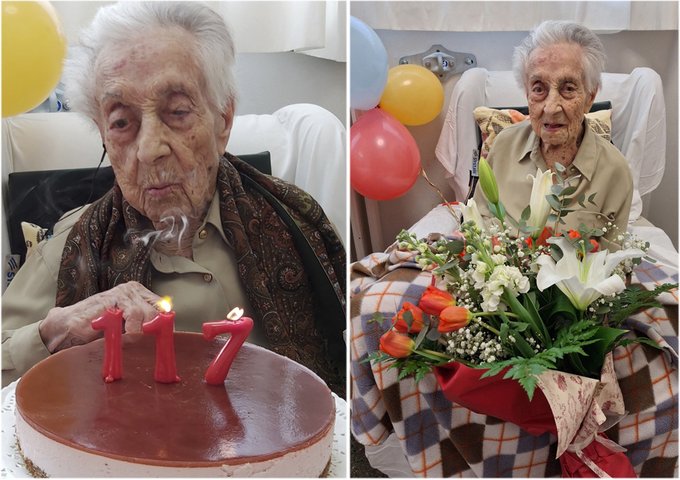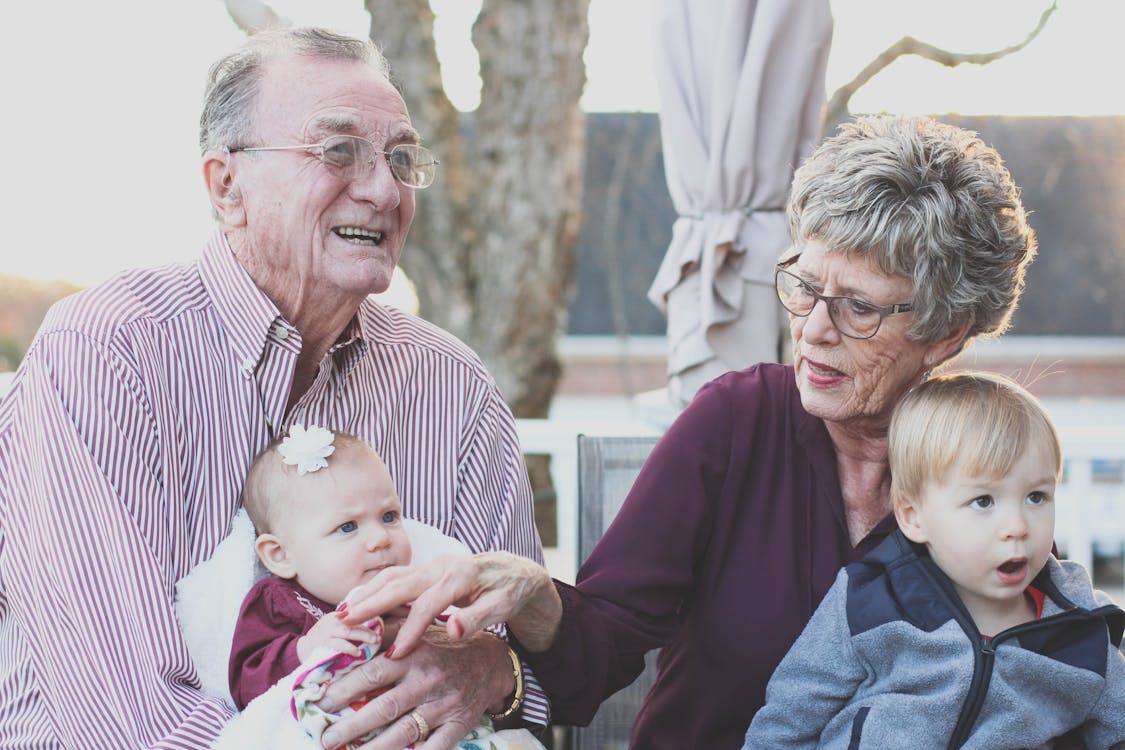The World’s Oldest Person Who Lived Until 117 Reveals The One Food She Ate Every Day That Helped Her Live So Long

What does it take to live for more than a century—through pandemics, wars, and the whirlwind of societal changes? The answer isn’t always what you might expect. While scientists chase breakthroughs and wellness trends dominate headlines, two extraordinary women—Maria Branyas Morera and Emma Morano—achieved remarkable longevity with habits that were surprisingly down-to-earth.
Both women lived to the age of 117, witnessing the world’s evolution across three centuries. Their secrets weren’t hidden in laboratories or wellness fads but in their approach to daily life, emotional well-being, and simple dietary choices. Could the key to a longer, healthier life lie in small, intentional actions? Their lives may just inspire you to reconsider what truly matters. Curious about what these secrets are and how you can apply them to your own life?
Everyday Foods That Fueled Extraordinary Lives
 Image source: Freepik
Image source: Freepik
The daily dietary choices of Maria Branyas Morera and Emma Morano offer intriguing insights into the potential impact of simple, consistent eating habits on longevity.
Maria Branyas Morera’s Yogurt Ritual
Maria Branyas Morera, who lived to be 117, attributed part of her longevity to her daily consumption of yogurt. She referred to it as her “heavenly manna,” stating, “For 20 years, it has been my ‘heavenly manna.’ The best yogurt in the world. It gives life, it is life.”
Yogurt is rich in probiotics, which support gut health, digestion, immune function, and even mood regulation. Studies show that fermented foods like yogurt can have anti-inflammatory effects and may reduce the risk of age-related diseases, supporting cardiovascular health and overall well-being.
Emma Morano’s Egg-Centric Diet
Emma Morano, another supercentenarian who reached 117 years, maintained a unique dietary habit of consuming multiple eggs daily. After being diagnosed with anemia in her twenties, she began eating three eggs a day—two raw in the morning and one cooked later in the day. She continued this regimen for over 90 years, reducing it to two eggs daily in her later years.
Eggs are a rich source of high-quality protein, essential amino acids, and various vitamins and minerals, including vitamin B12, selenium, and choline. While some studies have debated the impact of egg consumption on health, particularly concerning cholesterol levels, others suggest that moderate egg intake can be part of a healthy diet. For instance, research published in the International Journal of Environmental Research and Public Health found that higher egg consumption was associated with a lower risk of mortality in Chinese adults.
Both women’s diets were marked by consistency and moderation. Maria emphasized that she had “always eaten little, but everything,” and had “never followed any regime.”
Emma’s diet, though unconventional, was simple and adhered to for decades. This aligns with research suggesting that dietary patterns characterized by moderation and the inclusion of nutrient-rich foods contribute to overall health and longevity.
Why Positivity and Peace Might Be the Real Fountain of Youth
Emotional stability is a cornerstone of longevity, as exemplified by supercentenarians Maria Branyas Morera and Emma Morano. Maria attributed her long life to “order, tranquility, good connection with family and friends, contact with nature, emotional stability, no worries, no regrets, lots of positivity, and staying away from toxic people.”
Scientific research supports the link between emotional well-being and extended lifespan. A study funded by the National Institute on Aging found that optimism correlates with a longer lifespan across diverse racial and ethnic groups of women. This association persisted even after accounting for health behaviors, suggesting that a positive outlook directly influences longevity.
Further emphasizing the importance of emotional health, a Stanford study revealed that as people age, they become more emotionally balanced and better equipped to handle highly emotional problems. This increased emotional stability contributes to longer, more productive lives.
Emma Morano’s life also underscores the significance of emotional resilience. After enduring personal tragedies, including the loss of her only child and an unhappy marriage, she chose to live independently, believing that avoiding emotional stress contributed to her longevity. Her decision to remain single was a testament to her commitment to maintaining emotional stability.
Genetics vs. Lifestyle
 Image source: Pexels
Image source: Pexels
The remarkable longevity of Maria Branyas Morera and Emma Morano prompts an exploration into the interplay between genetics and lifestyle in determining lifespan. Both women acknowledged the role of genetics in their extended years. Maria remarked, “I think longevity is also about being lucky. Luck and good genetics.”
Scientific research supports the notion that genetics contribute to longevity, but perhaps not as dominantly as once believed. Studies suggest that about 20-25% of the variation in human lifespan can be attributed to genetic factors.
This leaves a substantial portion influenced by environmental factors and lifestyle choices.
Emma Morano’s family history reflects this genetic component; her mother lived to 91, and several of her sisters reached or surpassed 100 years.
However, Emma also made deliberate lifestyle choices that she believed contributed to her longevity, such as her unique dietary habits and decision to live independently after an unhappy marriage.
Lifestyle factors, including diet, physical activity, stress management, and social connections, play a significant role in determining lifespan. A study published in BMJ Evidence-Based Medicine found that healthy lifestyle choices can mitigate genetic risks, emphasizing the importance of behaviors over genetic predispositions.
Principles for a Long and Fulfilling Life
 Image source: Pexels
Image source: Pexels
Longevity isn’t about chasing secret formulas but embracing simple, intentional habits that nurture both body and mind. María Branyas Morera and Emma Morano, who each lived to 117, credited their extraordinary lifespans to emotional stability and meaningful relationships. María emphasized positivity, avoiding toxic people, and letting go of regrets, a mindset supported by research linking emotional resilience to better health. Strong social connections, with family and friends, also played a pivotal role, improving mental well-being and fostering a sense of belonging.
Their dietary habits reflected a focus on balance and moderation. María’s daily yogurt, rich in probiotics, supported her digestion and immunity, while Emma’s consistent consumption of eggs provided essential nutrients. Both women embraced simple, nutrient-rich foods without overindulgence, demonstrating the power of mindful eating in supporting a long and healthy life. Complementing this, they stayed physically active and mentally engaged, with movement and cognitive stimulation helping to keep their bodies strong and their minds sharp.
Key to their longevity was also a sense of purpose and a focus on positivity. They avoided toxic relationships and harmful habits, such as smoking and excessive alcohol consumption, while prioritizing rest and recovery. Their stories show that living longer isn’t about complex strategies but consistent, thoughtful choices that foster physical health, emotional balance, and meaningful connections—habits we can all embrace to add not just years to life, but life to our years.
The Art of Aging Gracefully
The extraordinary journeys of María Branyas Morera and Emma Morano reveal that the path to longevity is not paved with unattainable goals or complex regimens but with simplicity, consistency, and mindfulness. Their lives, spanning centuries, remind us of the profound impact of emotional stability, balanced nutrition, meaningful relationships, and adaptability in the face of life’s challenges.
While genetics may set the stage, the choices we make—how we nourish our bodies, care for our minds, and connect with others—play starring roles in determining how long and well we live. As María aptly put it, “Luck and good genetics” are part of the equation, but it’s the intentional cultivation of well-being that brings lasting vitality.
The legacies of these supercentenarians offer a timeless blueprint for embracing longevity. By adopting their principles, we can all strive to lead healthier, more fulfilling lives, extending not just the years we live but the quality of those years.
Featured image from @MariaBranyas112 on X/Twitter
Loading...






